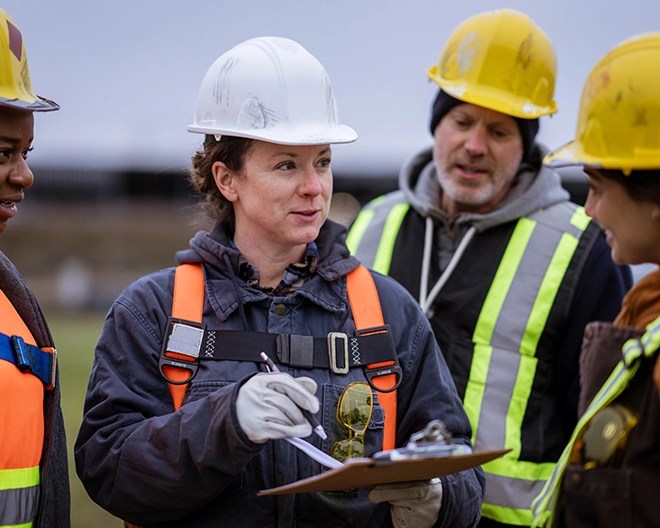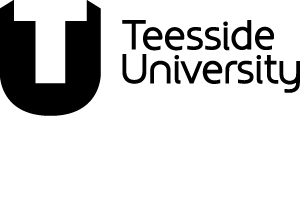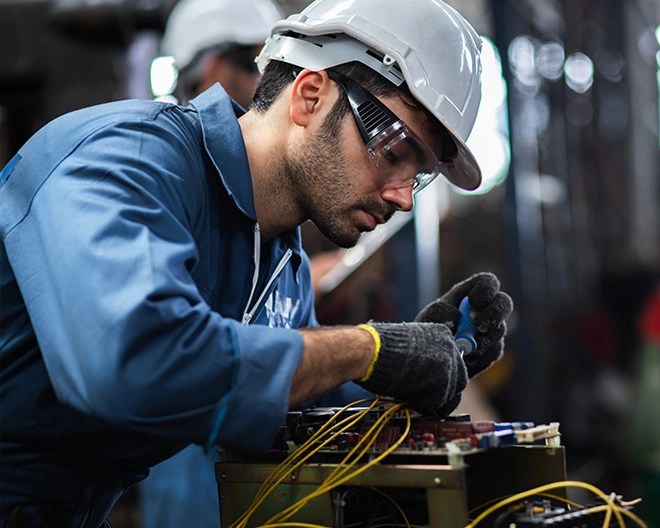

Engineering (Top-up) (Online), BEng Tech (Hons)
- Time investment
- 1 year full-time, 2 years part-time
- Location
- Online
- Cost
- Up to £13,200
- Language
- English
About this degree

Build the future, one innovation at a time
From smart factories to renewable energy breakthroughs, engineers are at the forefront of innovation that touches every part of our lives.
This online top-up degree builds on your HND or foundation degree, helping you deepen your technical expertise and sharpen your analytical thinking.
You’ll explore sustainable systems, Industry 4.0 technologies, and automation, preparing you to contribute to projects that are shaping a smarter, cleaner, and more efficient world.
Turn ideas into real-world solutions
Learn to manage complex engineering projects, ensure product quality, and apply advanced design principles in contexts that mirror today’s industry challenges.
Through modules in project management, product reliability, and engineering design, you’ll gain hands-on experience creating solutions that balance efficiency, sustainability, and user needs.
By combining technical mastery with problem-solving skills, you’ll graduate ready to step into senior engineering or design roles with confidence.


Lead innovation in a high-tech world
Explore how Industry 4.0, AI, IoT, and renewable energy technologies are transforming engineering and industrial systems. You’ll tackle real-world problems, develop creative, forward-thinking solutions, and investigate sustainability across energy, manufacturing, and transport.
Come graduation, you’ll be equipped to drive innovation, implement change, and make an impact in one of the most dynamic and high-demand sectors today.
Where you’ll be studying

Studying at Teesside University
Teesside University delivers 100% online, career-focused education designed to help you thrive anywhere in the world.
With a Gold rating (Teaching Excellence Framework 2023) and recognised for outstanding student experience, Teesside combines expert teaching with research that drives real-world impact.
Flexible and innovative, they offer online courses that fit around your life, empowering you to upskill, reskill, or take the next step in your career.
Learning outcomes
Engineer for a sustainable future
Explore eco-friendly technologies, automation, and data-driven systems shaping modern industry.
Power up with renewables
Discover clean energy innovations that are transforming industries around the world.
Design like a pro
Apply creativity and technical skills to develop innovative solutions to complex engineering challenges.
Build quality you can trust
Use industrial quality control and reliability methods to ensure products perform as intended.
Lead projects with confidence
Develop essential project management skills to plan, execute, and deliver successful engineering outcomes.
Additional information
- UKVI approved IELTS (Academic)
- Non-UKVI approved IELTS
- Trinity Integrated Skills in English (ISE) – B2 and C1 tests
- Pearson’s PTE Academic
- PTE Academic UKVI
- LanguageCert International ESOL SELT
- TOEFL iBT
- WAEC grades A1 to C6
- NECO grades A1 to C5
- SPM grades A to C
- Kenya High School Certificate Grade C+ or Higher
- Uganda Advanced Certificate of Education grades 1 to 6
- Uganda Certificate of Education grades 1 to 6
Beyond technical expertise, you’ll gain skills in problem-solving, teamwork, and project management, which are highly valued in consultancy, research, and leadership positions. Graduates often find opportunities to specialise in areas that match their interests, from sustainable technologies to industrial automation.
Find out more about this degree
Modules
Related degrees
Explore related subject areas
Browse similar fields of study that align with your interests. These related subjects can expand your options or complement your chosen degree path.
Want to know more?
Please fill in your details, and we’ll share your information with Teesside University, who will be in touch.



